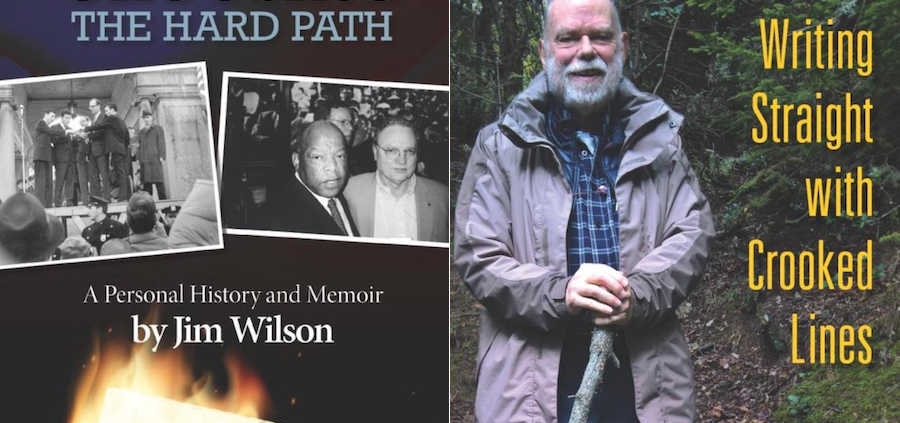Blessed Are the Peacemakers: A Note on the Passing of Two TAC Contributors
In January, two contributors to Today’s American Catholic known for their commitment to the work of peacemaking passed away: Jim Wilson, whose “Positively Christie Street” recalled his time at the Catholic Worker in New York in the mid-1960s, on January 8; and Jim Forest, who graciously allowed us to reprint his essays on “Paschal Hospitality” and the Feast of the Transfiguration, five days later on January 13.
Both Jims were active in the Catholic Worker of the ’60s, and both were friends of the Berrigan brothers and Dorothy Day. Additionally, Jim Wilson was one of five men including Catholic Worker Tom Cornell who burned their draft cards in Union Square in November 1965, igniting the national antiwar movement in the process; Cornell had worked closely with Jim Forest in establishing the Catholic Peace Fellowship the previous year.
Wilson’s and Forest’s lives would overlap in word as well as deed: both eventually wrote memoirs detailing their experiences of faith and action, from participation in the civil rights protests in Selma, Alabama (in Wilson’s Choosing the Hard Path), to burning Selective Service records in Milwaukee, Wisconsin (in Forest’s Writing Straight with Crooked Lines). Both would serve time in prison for their uncompromising antiwar stance—Wilson for refusing to report for induction, and Forest for the aforementioned property destruction as a member of the “Milwaukee Fourteen.”
Given the parallels of their journeys—even into later life, when both become grandfathers and passed along their hard-won wisdom to the younger generation—and their dedication to Gospel nonviolence, it seems a timely gesture of the Holy Spirit that Archbishop John Wester of Santa Fe, New Mexico, should have selected January 11 as the date to release his pastoral letter “Living in the Light of Christ’s Peace: A Conversation Toward Nuclear Disarmament.” As they were entering or preparing to enter into eternal life, the vision that Wilson and Forest shared, and on behalf of which they sacrificed, for a prophetic church that calls out the scandal of war was here being amplified by an American prelate. For a Catholic Church that has “often reflected on peace, yet without a robust description and centering of active nonviolence,” as Eli McCarthy has written, it felt for a moment like the clerisy was finally catching up. If that is indeed true, it is in no small part thanks to the courageous witness of men (and women) like Wilson and Forest. They were not merely hearers of the word but doers as well, whose lives articulated the core truth of Wester’s message:
Jesus came into the world as the true light. He came to lead us out of the darkness of violence, death, and destruction. In doing so, He is the “light of the world.” His light is the exact opposite of the bright light of a nuclear weapon. His light is the true light of universal love, the light of universal compassion, the light of universal peace. ♦





Leave a Reply
Want to join the discussion?Feel free to contribute!